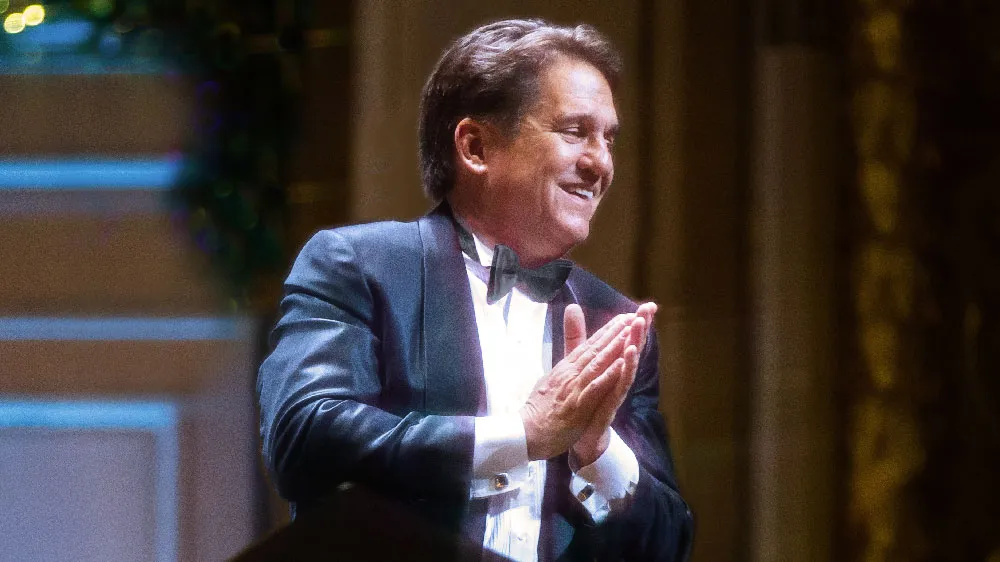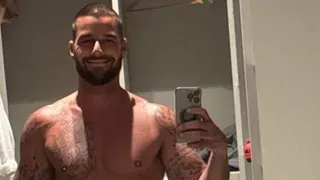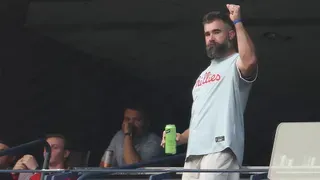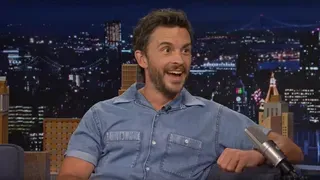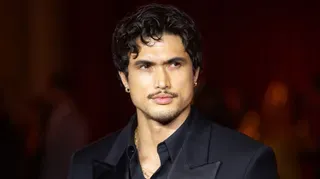May 5, 2015
Jason Collins, Joe Kennedy, Derrick Gordon Talk Advocacy, Athletics Before PFLAG Event
Antoinette Weil READ TIME: 6 MIN.
Jason Collins, the first openly gay National Basketball Association player, and Massachusetts Congressman Joe Kennedy III will be honored at Greater Boston PFLAG's (Parents, Friends and Families of Lesbians and Gays) annual Pride and Passion benefit on May 11 for their work in LGBT causes. Also joining them will be Derrick Gordon, the first openly gay NCAA men's Division 1 basketball player.
Collins rocked the nation when he came out in 2013 as a free agent for the NBA, becoming the first openly gay professional athlete in one of the four major American sports. His signing with the Brooklyn Nets post-proclamation seemed to signal that it was "OK" to be an out athlete. But the wave of comings-out and support of out players that some expected following Collins' history-making move has yet to take hold. The field has been rather quiet, and for those athletes who have followed in Collins' footsteps, the verdict is still out.
EDGE caught up with the pro, the Congressman, and the rising star to talk about the state of American athletics and their inspiring and intertwining stories.
"Everyone is waiting to see if I get drafted," said Derrick Gordon, who came out last year after finishing his junior basketball season with the University of Massachusetts. "It's a lot of pressure, but I don't let it get to me," he said.
If he is picked up by a team, and does well enough to stay in the game, perhaps then we would see the kind of widespread acceptance or following that many expected and hoped for after Collins.
"What we need is more possibility models," said Collins.
He points to Robbie Rogers, openly gay men's soccer player for the LA Galaxy, as a great example of that "possibility model" because he came out in the prime of his career and is still playing -- and very well. Seeing an athlete succeeding at his or her game regardless of sexual orientation is a key component for others waiting in the wings to come out.
Another component, Collins said, is people in decision-making positions, who are members of LGBT community, going public. Although he concedes that individuals should come out only when they're ready, Collins points to coaches, staffers and executives staying closeted as a disservice to the greater good of the LGBT community.
"You don't have to lead the pride parade," Collins said. "But stand up and be counted."
If Rogers is a golden example of coming out and thriving, we can look to the National Football League and to Michael Sam, the first openly gay player drafted into the NFL, for perhaps the opposite example.
While Sam was finishing up his senior season at Missouri State University, he was projected to be picked up in the fourth round of the draft. Instead, he was a seventh round pick. While some point to his size (small for a defensive player) or less than perfect performance at the Senior Bowl, others look to comments from several anonymous NFL executives printed in Sports Illustrated, which predicted a fall in the draft due to his coming out.
Though Sam was picked up by the St. Louis Rams and had a pretty favorable preseason, he was cut from the team, but later picked up by Dallas for the Cowboys' practice team. But he was cut again. He remains a free agent with an uncertain future.
This uncertainty is not lost on Gordon, who believes the chances of his own coming out hurting him in the draft to be about 50/50.
"I feel for him," said Gordon when asked about Sam. "We're in similar situations, but we all take risks in life. If I don't make it I still won't regret what I did."
In fact, Gordon says that everything that has happened since he came out-from fans clapping and holding gay flags in the stands, to having Jason Collins as a mentor and friend, to being able to inspire other young athletes-has been a blessing.
Gordon is looking forward to being part of yet another inspiring event when he attends the Pride and Passion benefit, which raises money for education programs, support groups, anti-bullying endeavors, and improving environments for LGBTQ people.
The two honorees, Collins, whom Gordon calls a big brother, and Rep. Kennedy, Collins' former roommate whom he credits as one of his own inspirations and biggest supporters, could not have been more aptly picked.
"The acceptance and mutual support between these men and the work they have done changing hearts and minds," said Tom Bourdon, President of Greater Boston PFLAG. "Has helped to make environments safer for LGBTQ people, and makes them a no-brainer for PFLAG's honorees."
Kennedy, a member of the Equality Caucus, said sharing the stage with his friend and being honored by PFLAG will be a very special moment. But he said it is Gordon and Collins who really deserve the praise.
"Whatever role I may have played pales in comparison to what Jason and Derrick Gordon have chosen to do. It is really extraordinary," said Kennedy. "I would be very excited just to be in the audience, and I'm humbled to be chosen to be honored."
Collins, Kennedy, and Gordon, hope that with the help of role models, more young LGBT athletes will be able to come out and live openly and authentically.
"It is an area that still needs a lot of work," said Bourdon. "But if athletics does become an environment that is more accepting it's going to have huge impacts on society."
To learn more about PFLAG or to attend the Pride and Passion event visit www.gbpflag.org
